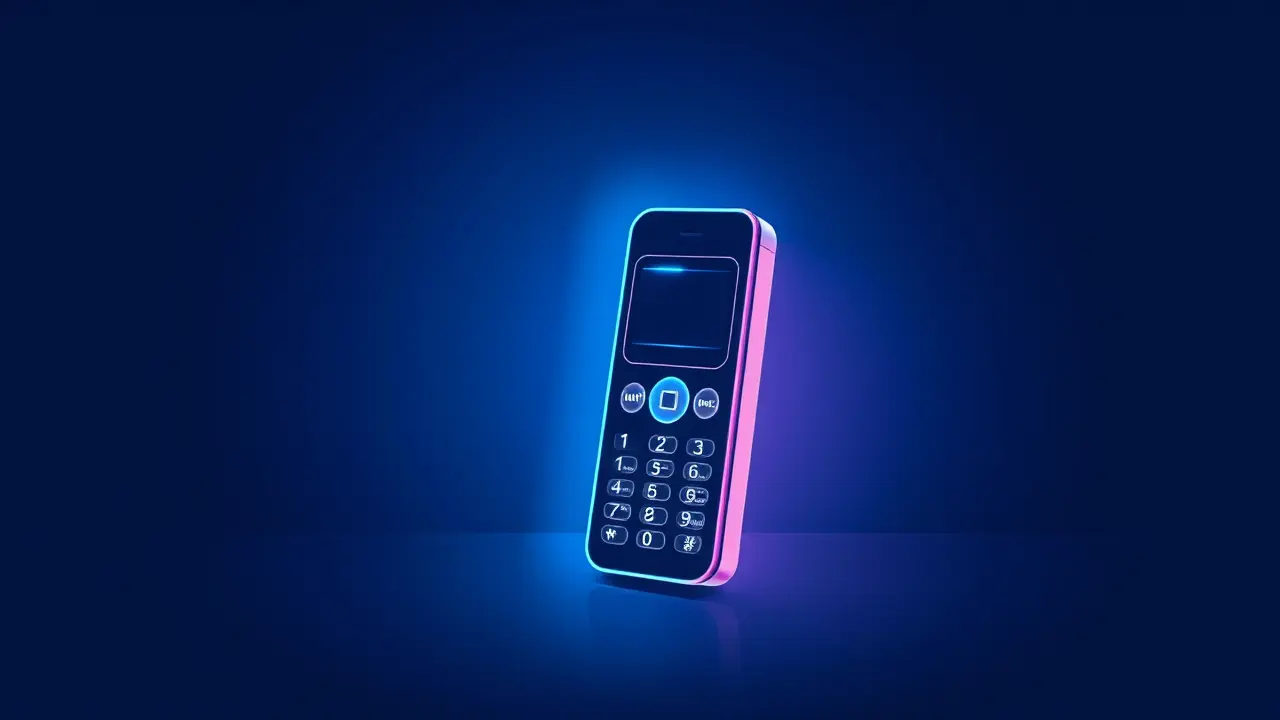
Otherothers newsTechnology and Society
A Club Helps People Quit Their Smartphones.
LA
Laura Bennett
4 hours ago7 min read
In a quiet corner of Washington, D. C., a movement is quietly unfolding that speaks to a deep, collective yearning for connection in our hyper-digitized age. For the past few months, a company called Dumb and Co.has been orchestrating a project called Month Offline, a kind of modern-day support group for those looking to break up with their smartphones. It’s not merely a digital detox; it’s a social experiment rooted in community.The home base is Hush Harbor, the city's first phone-free bar, and the initial application process itself was a deliberate act of slowing down—prospective participants had to call a 1-800 number and leave a voicemail, a small but significant gesture that forces a pause in our instant-gratification culture. What began as a local initiative is now expanding, with a website offering a $100 national cohort package that includes a TCL flip phone—the 'Dumb Phone 1'—a new number with a 404 area code, a guided curriculum, and weekly dial-in radio programs.The first in-person cohort outside D. C., Month Offline Brooklyn, is set to launch in January 2026, signaling a growing national appetite for this kind of intentional disconnection. This phenomenon taps into a broader cultural nostalgia, reminiscent of the recent resurgence of CDs and compact digital cameras, a longing for technology that serves a single purpose without commandeering our entire attention span.As one of the co-founders, Grant Besner, poignantly observed, 'The phone certainly amplifies some of our avoidant tendencies. Just replacing it even for a little bit and needing to sit with your own thoughts to be bored can be a transformative and really positive experience in someone's life.' I spoke with several participants, and their stories revealed a common thread: this was less about abandoning a device and more about rediscovering themselves. Lydia Peabody, who now works for Month Offline, described her pre-flip phone existence as 'scrolling my life away,' a sentiment that will feel achingly familiar to many.Her reflection after the month—'I didn't know life could feel this way. I didn't even know I could exist in this type of way'—highlights a profound psychological shift that goes beyond simple screen-time metrics.The program has been likened to 'AA for smartphones,' a comparison that underscores its role as a genuine support system where people share struggles with algorithms, doomscrolling, and the peculiar loneliness that can accompany constant connectivity. This is part of a new generation of solutions addressing our smartphone-addled existence, joining carefully designed alternatives like the Light Phone 3 and friction-based tools like the Brick, an NFC-enabled magnet that blocks access to certain apps.The overarching philosophy is that a weekend retreat isn't enough; lasting change requires learning to be more intentional, a lesson that is now echoing in our education systems. Following a 2017 Atlantic article that asked 'Have smartphones destroyed a generation?' and subsequent revelations about Instagram's internal knowledge of its harm to teens, the conversation has shifted from wellness trend to full-blown social movement.We've seen Florida become the first state to ban phones in classrooms in 2024, with 34 others following suit, and early reports, such as a spike in library book checkouts in a Kentucky school district, hint at the potential positive repercussions. The question naturally arises: what would a phone ban for adults look like? Over half of U.S. adults report worrying about smartphone addiction, according to a 2024 Harris Poll, yet a complete rejection remains daunting for most.The research, however, offers a glimmer of hope. Kostadin Kushlev, a Georgetown psychology professor who leads the Digital Health and Happiness Lab, confirms that 'Overall, there is now emerging evidence that digital detox can and does work,' though he notes much of the research focuses on quitting single features like social media, which has been shown to be beneficial for mental health.The organizers of Month Offline understand that a month-long commitment isn't for everyone, so they offer the Dumb Phone 1 with service for $25 a month, and an app called Dumb Down to ease the transition between an iPhone and a flip phone. Even without the formal support group, studies suggest that switching to a simpler device can deepen friendships and improve attention spans.This isn't a call to throw our phones into the sea, but an invitation to examine the architecture of our daily lives and ask whether our tools are serving us, or if we have unwittingly become servants to them. It’s a quiet rebellion, happening one flip phone and one shared conversation at a time, reminding us that the most profound connections are often found not in a notification, but in the space between them.
#featured
#digital detox
#smartphone addiction
#flip phones
#community support
#mental health
#Month Offline
#Dumb Phone
Stay Informed. Act Smarter.
Get weekly highlights, major headlines, and expert insights — then put your knowledge to work in our live prediction markets.
© 2025 Outpoll Service LTD. All rights reserved.